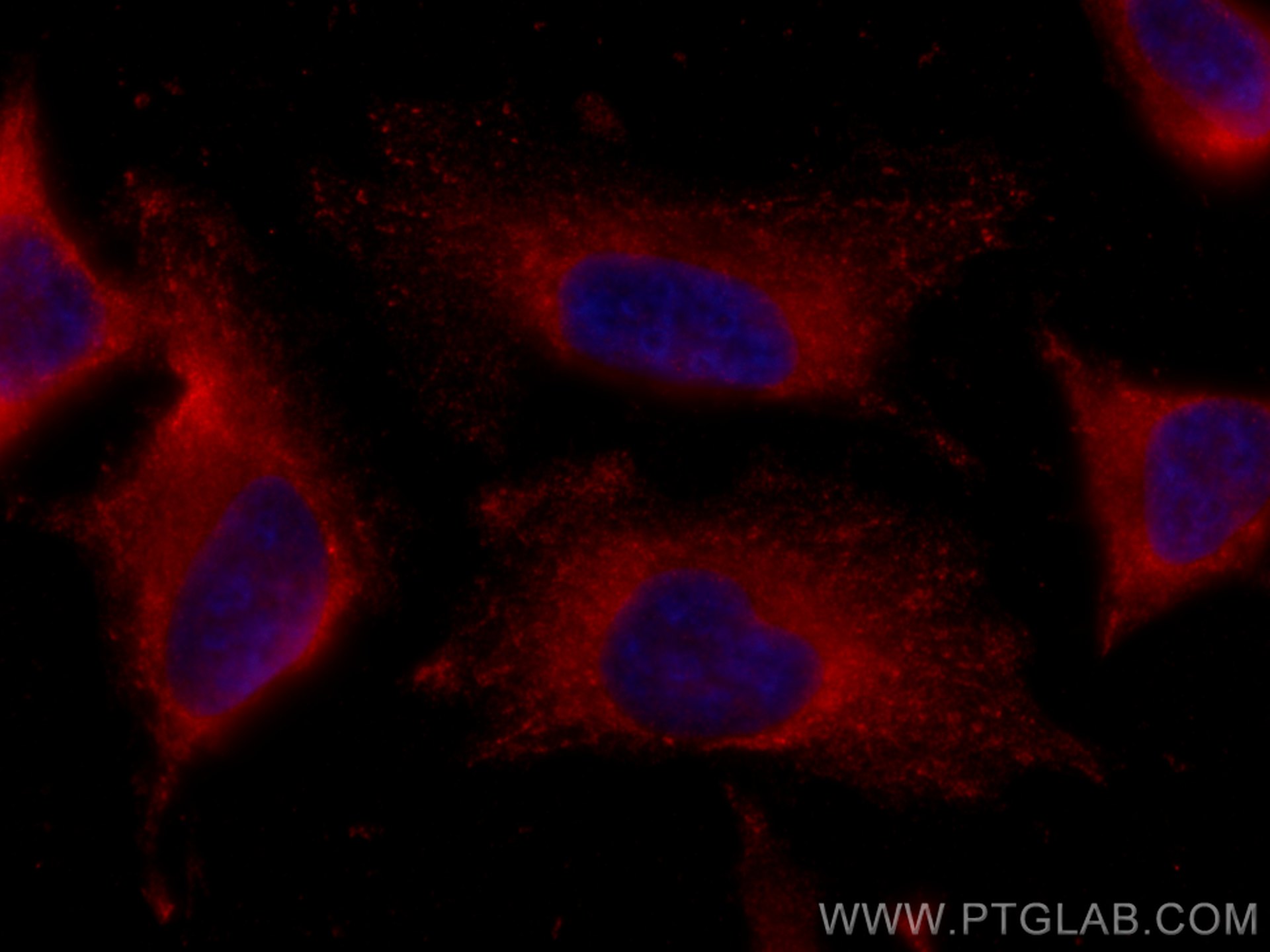Tested Applications
| Positive IF/ICC detected in | HeLa cells |
Recommended dilution
| Application | Dilution |
|---|---|
| Immunofluorescence (IF)/ICC | IF/ICC : 1:50-1:500 |
| It is recommended that this reagent should be titrated in each testing system to obtain optimal results. | |
| Sample-dependent, Check data in validation data gallery. | |
Product Information
CL594-66708 targets ATG13 in IF/ICC applications and shows reactivity with Human, Mouse, Rat, Pig samples.
| Tested Reactivity | Human, Mouse, Rat, Pig |
| Host / Isotype | Mouse / IgG1 |
| Class | Monoclonal |
| Type | Antibody |
| Immunogen |
CatNo: Ag12968 Product name: Recombinant human KIAA0652 protein Source: e coli.-derived, PET28a Tag: 6*His Domain: 131-481 aa of BC001331 Sequence: ITRVTPAYRLSRKQGHEYVILYRIYFGEVQLSGLGEGFQTVRVGTVGTPVGTITLSCAYRINLAFMSTRQFERTPPIMGIIIDHFVDRPYPSSSPMHPCNYRTAGEDTGVIYPSVEDSQEVCTTSFSTSPPSQLMVPGKEGGVPLAPNQPVHGTQADQERLATCTPSDRTHCAATPSSSEDTETVSNSSEGRASPHDVLETIFVRKVGAFVNKPINQVTLTSLDIPFAMFAPKNLELEDTDPMVNPPDSPETESPLQGSLHSDGSSGGSSGNTHDDFVMIDFKPAFSKDDILPMDLGTFYREFQNPPQLSSLSIDIGAQSMAEDLDSLPEKLAVHEKNVREFDAFVETLQ* Predict reactive species |
| Full Name | KIAA0652 |
| Calculated Molecular Weight | 57 kDa |
| Observed Molecular Weight | 57 kDa |
| GenBank Accession Number | BC001331 |
| Gene Symbol | ATG13 |
| Gene ID (NCBI) | 9776 |
| RRID | AB_2923924 |
| Conjugate | CoraLite®594 Fluorescent Dye |
| Excitation/Emission Maxima Wavelengths | 588 nm / 604 nm |
| Form | Liquid |
| Purification Method | Protein G purification |
| UNIPROT ID | O75143 |
| Storage Buffer | PBS with 50% glycerol, 0.05% Proclin300, 0.5% BSA, pH 7.3. |
| Storage Conditions | Store at -20°C. Avoid exposure to light. Stable for one year after shipment. Aliquoting is unnecessary for -20oC storage. |
Background Information
ATG13 is one component protein of the ULK1 complex which is required for autophagosome formation and mitophagy. ATG13 has two nutrient regulatory phosphorylation sites and the phosphorylation status of ATG13 affect regulation of autophagy by modulating enzyme activity and cellular localization of ULK1. Besides, it has been reported the nonautophagic function of ATG13 on cardiac development for ATG13-deficient embryos show myocardial growth defects.(PMID:27387056, 26801615, 26644405)
Protocols
| Product Specific Protocols | |
|---|---|
| IF protocol for CL594 ATG13 antibody CL594-66708 | Download protocol |
| Standard Protocols | |
|---|---|
| Click here to view our Standard Protocols |




